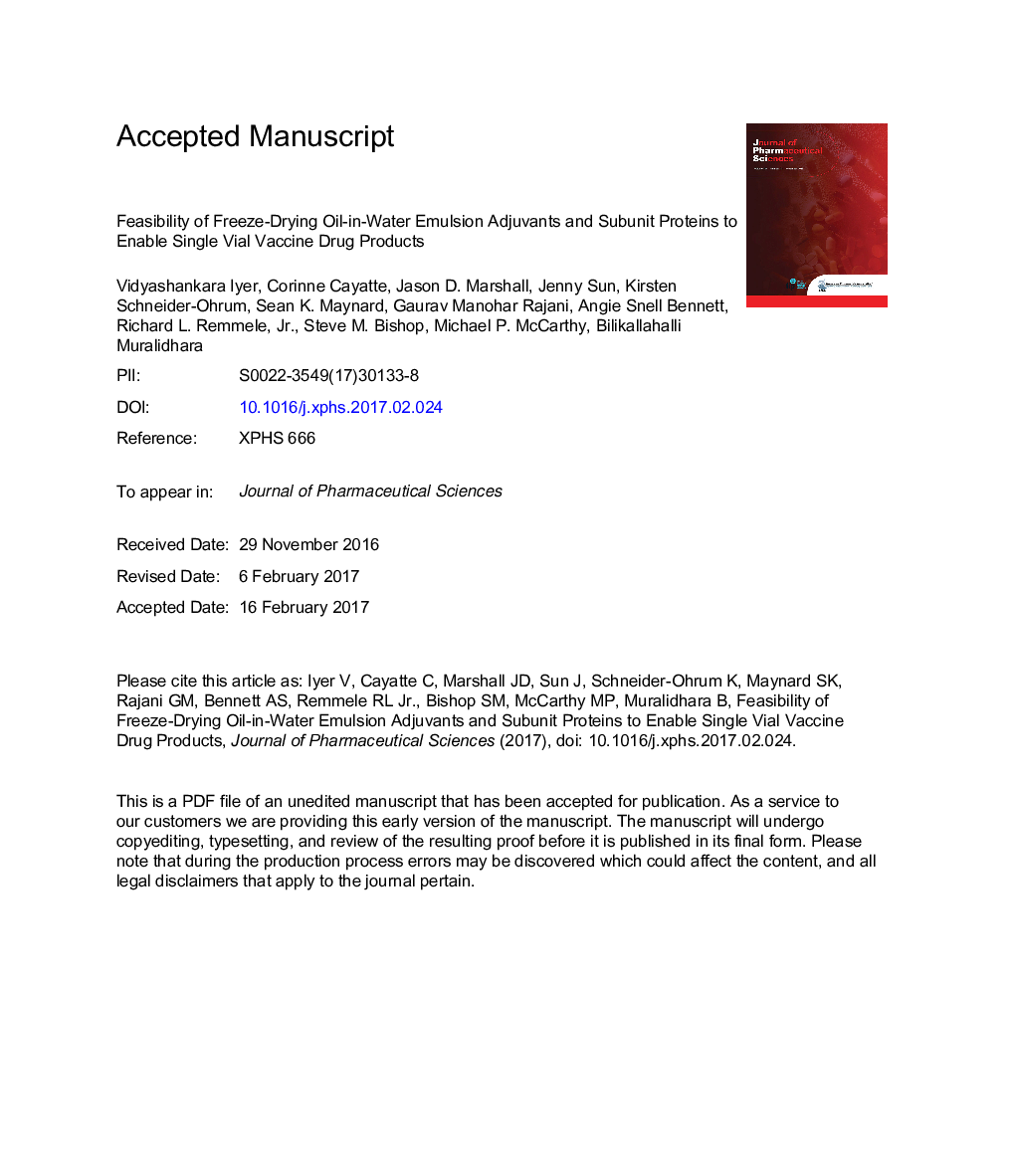| Article ID | Journal | Published Year | Pages | File Type |
|---|---|---|---|---|
| 8514176 | Journal of Pharmaceutical Sciences | 2017 | 34 Pages |
Abstract
To generate potent vaccine responses, subunit protein antigens typically require coformulation with an adjuvant. Oil-in-water emulsions are among the most widely investigated adjuvants, based on their demonstrated ability to elicit robust antibody and cellular immune responses in the clinic. However, most emulsions cannot be readily frozen or lyophilized, on account of the risk of phase separation, and may have a deleterious effect on protein antigen stability when stored long term as a liquid coformulation. To circumvent this, current emulsion-formulated vaccines generally require a complex multivial presentation with obvious drawbacks, making a single-vial presentation for such products highly desirable. We describe the development of a stable, lyophilized squalene emulsion adjuvant through innovative formulation and process development approaches. On reconstitution, freeze-dried emulsion preparations were found to have a minimal increase in particle size of â¼20 nm and conferred immunogenicity in BALB/c mice similar in potency to freshly prepared emulsion coformulations in liquid form.
Keywords
Related Topics
Health Sciences
Pharmacology, Toxicology and Pharmaceutical Science
Drug Discovery
Authors
Vidyashankara Iyer, Corinne Cayatte, Jason D. Marshall, Jenny Sun, Kirsten Schneider-Ohrum, Sean K. Maynard, Gaurav Manohar Rajani, Angie Snell Bennett, Richard L. Jr., Steve M. Bishop, Michael P. McCarthy, Bilikallahalli K. Muralidhara,
